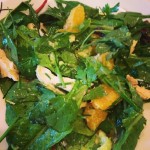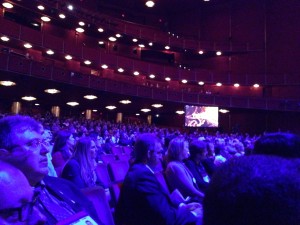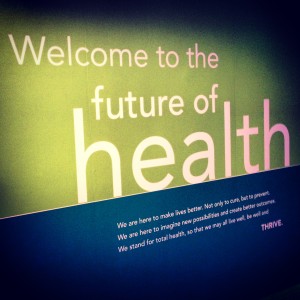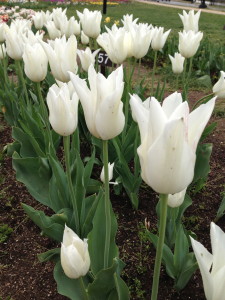Posted on: April 18th, 2013 by Amy Lynn Smith
TEDMED is, I’m realizing, much more than a meeting of the minds. It’s a place where transformation happens on the spot — where the very experience of being surrounded by so much passion, innovation and creativity transforms you.
Resistance is futile. And, really, why would anyone want to resist? I certainly don’t. I’m pretty sure many of my fellow delegates feel the same way
Some of them, like me, are in active pursuit of transformation. We’re expanding our careers and dreams in new directions, and came to see what insights we could absorb. Others may have come for different reasons, but many seem to be experiencing transformation anyway
 Honestly, it’s nearly impossible to resist the pull of the transformational gravity in the room. Nearly every presenter is sharing an experience of their own transformation, whether it already happened or it’s in process.
Honestly, it’s nearly impossible to resist the pull of the transformational gravity in the room. Nearly every presenter is sharing an experience of their own transformation, whether it already happened or it’s in process.
Over the last two days, I’ve had the honor of witnessing some remarkable storytelling from the stage, told in words and music and dance. Stories of healthcare, of science, of innovation. Stories of sickness and health, of life and death.
Stories like the one told by Oklahoma City Mayor Mick Cornett, who transformed his city from one of the country’s most obese to one of the most fit, simply by starting a conversation about it with citizens.
Stories of similar community engagement, like the one created by Keep Growing Detroit, which is transforming abandoned open spaces into urban gardens — making citizens healthier and inspiring them to take action in other ways to make Detroit stronger.
Stories of innovators like Jonathan Bush of athenahealth, Zubin Damania, MD, of Downtown Project Las Vegas, and Sally Okun, RN, of PatientsLikeMe, who are transforming healthcare by reinvigorating its humanity, each in their own way and with their own passions.
So many of the presenters’ stories are personal and often visceral.
Gary Slutkin, MD, of Cure Violence, believes that violence is an epidemic — and it can be cured using the same approaches used to cure epidemic disease. It’s working, which is a powerful message in the week of the Boston Marathon bombing and the Senate’s inaction on gun violence.
Peter Attia, MD, tearfully admitted his regret over judging a patient for her obesity, which prompted him to ask new questions about the real causes of obesity that may ultimately lead to new revelations about treatment.
Salvatore Iaconesi, a poet, exuberantly shared how he turned his brain cancer diagnosis into an open-source online community of creative inspiration and knowledge — and is living, cancer-free, to tell the tale.
Andrew Solomon told revelatory stories of people whose identities aren’t defined by their illness — giving us a moving reminder that sometimes, the most powerful possible cure is love.
And Amanda Bennett, who eloquently shared the story of her husband’s life and his death from cancer. “We never said goodbye,” she said, “because we never gave up hope.”

Every presenter was inspiring, from the experts talking about how mobile technology will help us reach, communicate with and treat more patients to the artists whose talents expressed truths about the human condition.
The dance troupe that translates how cells move within the body into physical movement to aid researchers. The tap-dancing duo who helped us understand how our brains experience sound. The opera singer who has had two double lung transplants, but never stopped singing even though she had to learn how to breathe all over again.
Tomorrow’s the last day of TEDMED, and I’m going to miss being with this remarkable community. I’m sure I’ll be processing everything I’ve learned for weeks and months to come. But there are two things I’m sure of.
Opportunities for transformation are always in front of us, whether we seek them or not. And, no matter what, we should always hold on to hope.
+
Learn more about the TEDMED 2013 presenters and their work here.
 I’ve lived with diabetes for nearly 25 years, which isn’t as tough as it sounds. Thanks to advances in science and medicine, the management of this chronic disease has gotten better and, even more important for people like me, easier.
I’ve lived with diabetes for nearly 25 years, which isn’t as tough as it sounds. Thanks to advances in science and medicine, the management of this chronic disease has gotten better and, even more important for people like me, easier. 









